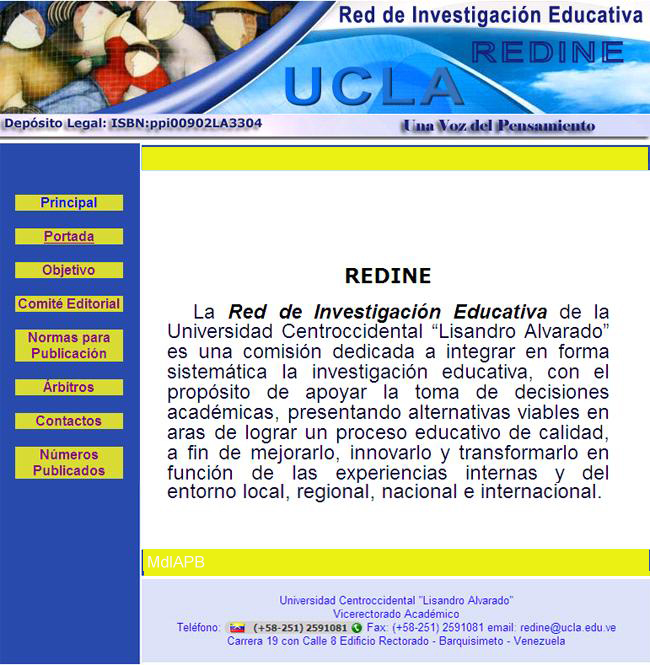logics and systems in the social organizationes a proposed curriculum
Keywords:
complexity, logic, social organizationAbstract
This work is an epistemological research which by way of inquiry in qualified documentary sources and handling categories necessary with the philosophy of knowledge has made confrontations between models of reason in the face of addressing the issue of the complexity that involves both social and professional relationships of graduates the DACE/UCLA. A model of reason (logic) tries to interpret and explain the reality guiding thinking in plan to interpret it. The interest of this work are the typical processes of social organizations whose complexity warrants an approach pensamental beyond linear thinking based on the analytic logic and understanding of reality as a totality. From there the need to supplement the curriculum of races offering the DACE in topics that have to do with these logics currently absent in his Pensa of study, as well as also the General system theory as a theoretical frame of reference for social organizations. "Therefore, proposes an instructional program that contemplates such issues, they are: "Analytical logic and laws of appoggiatura "," dialectical logic and the Ontoguiaturas", "Fuzzy logic and its reasoning theoretical", "The General theory of systems" and “Logics and applied systems”.
Downloads
References
Bettman, R. E. y Zadeh, L. A. ( 1976 ) ‘’Local and Fuzzy Logics’’.
Boulding, K. E. (1953). The Organizational Revolution. New York.
Copi, Irving. (2005). Introducción a la Lógica. Eudeba. Bs. As.
Lottka, A. (1925) Elements of Mathematical Biology. New York, Dover, 1956.
Ludwig von Bertalanffy.(1979). Perspectivas en la Teoría General de Sistemas. Alianza. Madrid. España.
Ludwig, von Bertalanffy. (1968). Teoría General de los Sistemas. Alianza. Madrid.
Moreno, Alexander. (2005). Lógica, Ética y Dialéctica, a través de los Refranes del Mundo. UCLA. www.alexandermoreno.com.
Moreno, Alexander. (2000) Lógica y Métodos Comparados en Educación. En libro Compilativo. Educación Comparada, Identidades y Globalización. UNESCO. IESALC. Caracas.
Velarde L, Julian. (1991). Gnoseología de los Sistemas Difusos. Universidad de Oviedo. Servicios de Publicaciones.
Volterra, V.(1931). Leçons sur la théorie mathématique de la lutte pour la vie, Paris, Villars.
Published
How to Cite
Issue
Section
Copyright from the year of publication
This work is licensed under a:
Creative Commons Reconocimiento-NoComercial-CompartirIgual 4.0 Internacional (CC BY-NC-SA 4.0)
The opinions expressed by the authors do not necessarily reflect the views of the publication's editor or UCLA. Total or partial reproduction of the texts published here is authorized, provided that the complete source and the electronic address of this journal are cited. Authors have the right to use their articles for any purpose, provided it is done on a non-profit basis. Authors may publish the final approved version of their work online or in any other medium after it has been published in this journal.




